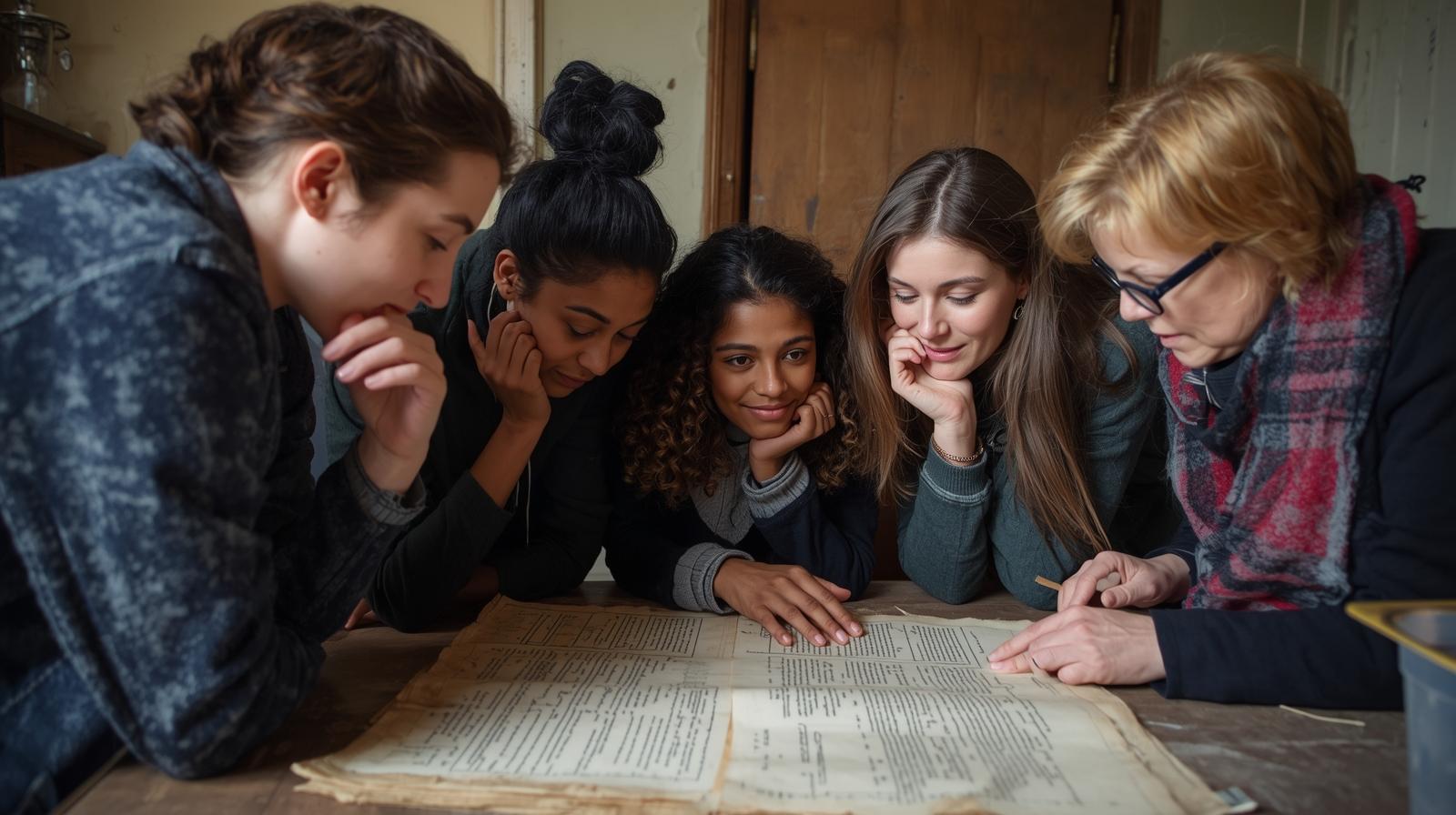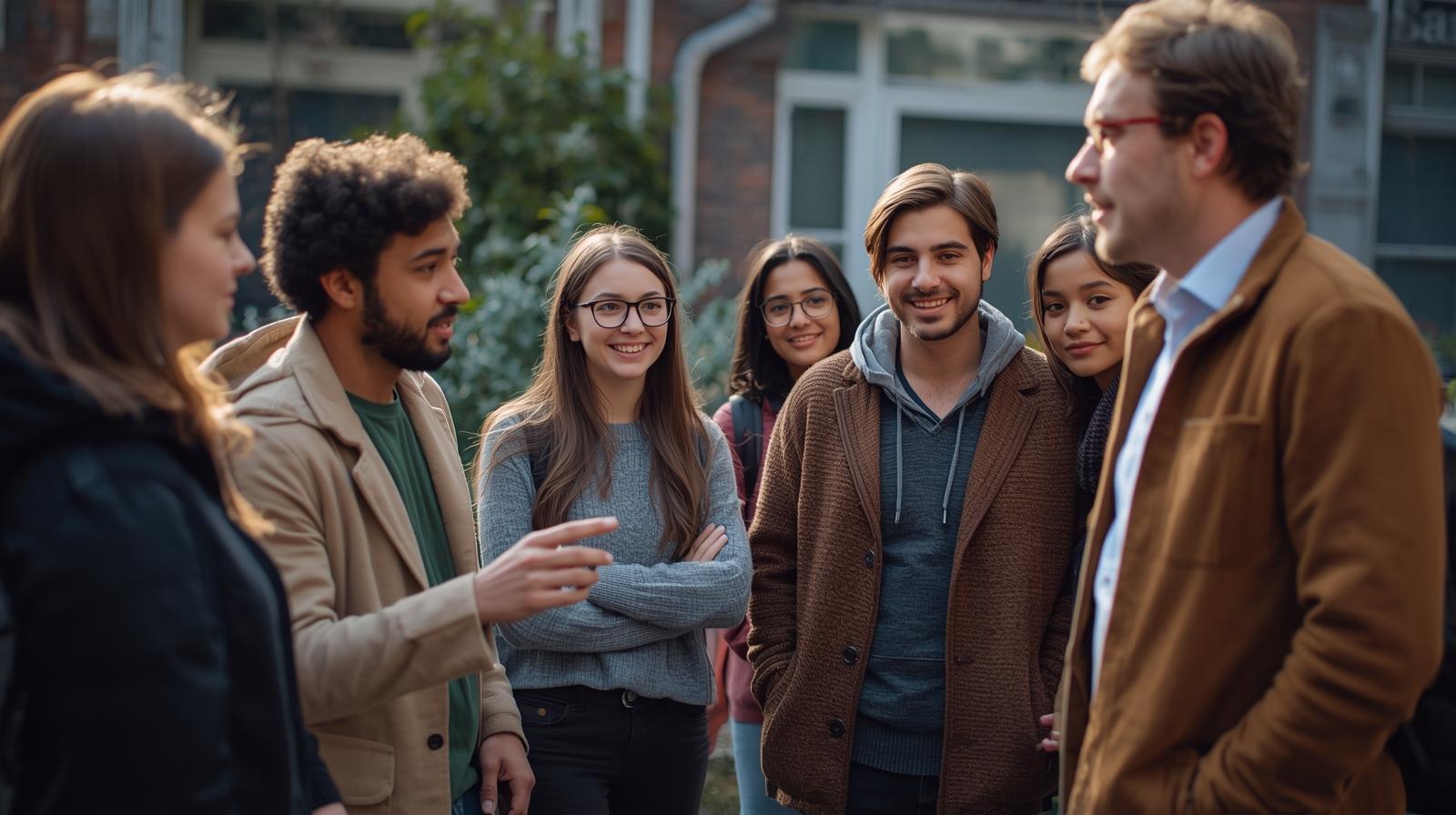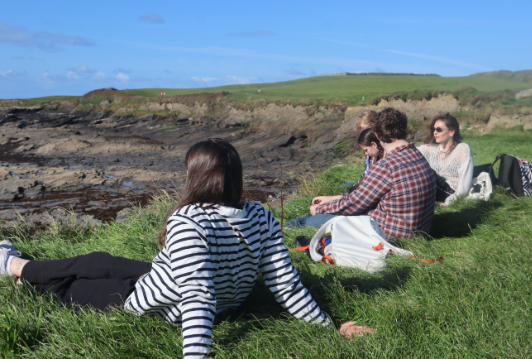Big Pond Education partners with universities and colleges to deliver faculty-led, customized study abroad programs in Dublin, Ireland. We combine immersive learning and real-world experiences with full local support
Career relevance now sits at the centre of Study Abroad
Across U.S. campuses, one question continues to resurface: how does study abroad help students prepare for the world of work, and how do universities cultivate the next generation of agile, creative thinkers? This is not a political or ideological debate; it is a practical reality that higher education institutions must navigate every day.
Career relevance, employability, and demonstrable skills increasingly shape student decision-making, parental expectations, and institutional strategy.
Students are looking for more than just an experience in a foreign city. They are seeking experiences that translate directly into real-world competencies that will allow them to go on to have fulfilling careers or to think entrepreneurially. When thoughtfully designed, study abroad programs in Ireland can do exactly this. With its compact geography, interconnected communities, and dynamic mix of industries, Ireland provides one of the clearest and most effective environments for demonstrating the value of study abroad.
"[Students] are seeking experiences that translate directly into real-world competencies that will allow them to go on to have fulfilling careers or to think entrepreneurially".
Ireland makes a society’s whole system visible
One of Ireland’s greatest educational advantages is its scale and accessibility. With just over seven million people on the island and with even the largest city often feeling like a large village, Ireland offers students the ability to observe complex systems in ways that feel tangible and understandable.
Unlike sprawling cities in the U.S., where organizational and policy structures can seem distant, Ireland’s compact ecosystem allows students to see the relationships between industry, government, research institutions, creative sectors, and community organizations in real time.
Seeing Decisions and Innovation Up Close
This immediacy fundamentally changes the learning dynamic. Students do not only engage with ideas abstractly. They witness how decisions are made, how innovation spreads, how organizations collaborate, and how public policy is shaped.
A faculty-led program in health or social sciences, for example, might include a policy briefing with a senior civil servant at the Department of Health in Dublin, followed by a cross-border visit to Northern Ireland to meet elected officials engaged in collaborative healthcare initiatives. Such experiences are highly efficient, offering insights into complex systems that might take months or years to comprehend in larger or less connected contexts.
Engaging the creative and commercial sectors

Beyond policy and governance, Ireland’s compact scale allows students to engage with creative and commercial sectors just as closely. Visits to design studios, tech start-ups, social enterprises, or cultural hubs reveal the mechanics of innovation, collaboration, and entrepreneurship in ways that are visible, approachable, and highly educational. Students emerge with a grounded understanding of how abstract ideas become concrete solutions, a critical skill for career readiness and entrepreneurial thinking.
What today’s students want (and expect)
Students today no longer see study abroad as simply a scenic or leisurely escape. They expect meaningful experiences that connect directly to their academic goals and future careers. Internships and real-world engagement are no longer optional, they are essential. A semester, Maymester or summer abroad that mirrors a student’s home-campus learning without extending or deepening it is rarely enough to justify the time, effort, and cost.
The role of local expertise
Working with a specialist local partner, such as Big Pond Education, allows universities to meet these rising expectations. Big Pond offers deep local relationships, curated experiences, and sector-spanning networks to ensure that impactful learning takes place beyond the classroom.
Students do not become passive observers of foreign culture, they become active participants in a living, working and learning environment. This integration of experiential learning and academic rigor helps students develop both practical and cognitive skills that translate directly into career-ready competencies.
How Ireland delivers career skills efficiently
Ireland’s compact geography and interconnected communities make it uniquely efficient for embedding career readiness into study abroad programs. Within one city, students can interact with start-ups, NGOs, community organizations, cultural institutions, and government departments, sometimes all in a single day. This density of opportunity allows programs to be highly adaptable and personalized.
Learning through collaboration
Even within the same program, students are likely to pursue different professional placements, for example one in a think tank and another at a tech start-up but whose physical proximity is close enough for meaningful dialogue and reflection over a shared morning coffee. These informal interactions foster peer learning, allowing students to see how disciplines intersect, collaborative problem-solving unfolds, and theory translates into practice.
Cross-disciplinary exposure is a natural outcome: discussions that bridge sectors spark new ways of thinking, an increasingly valued skill in global work environments.
Ireland’s compact geography and interconnected communities make it uniquely efficient for embedding career readiness into study abroad programs".
Making faculty work abroad simple and impactful
While faculty are often eager to teach abroad, the operational complexity can be daunting. Identifying partners, designing co-curricular experiences, arranging guest speakers, and ensuring alignment with academic goals all require local expertise and logistical capacity. For many faculty members, these tasks create barriers to international teaching.
Empowering faculty to focus on learning
Experienced local partners can take on these operational responsibilities, allowing faculty to focus on teaching, mentoring, and engaging their cohort of students. When logistical details are managed, faculty can dedicate their energy to in-country curriculum innovation to bring their course alive.

Consider an Irish Literature course. With local support, faculty can lead students on literary walks through Dublin, arrange encounters with contemporary authors, and access archives or community spaces tied directly to the texts under study. These experiences transform classroom learning into something tangible and memorable. Faculty are freed to innovate pedagogically, while students gain enriched exposure to real-world contexts that deepen understanding and critical thinking.
"Cross-disciplinary exposure is a natural outcome: discussions that bridge sectors spark new ways of thinking, an increasingly valued skill in global work environments".
Where career skills meet big ideas
Career relevance is crucial, but Ireland also offers something deeper: a place where ideas, systems, and people feel graspable. This encourages the development of higher-order cognitive abilities, including framing problems, navigating ambiguity and connecting concepts across disciplines. These capabilities are increasingly sought by employers who value graduates capable of thinking creatively and strategically rather than simply following instructions. It is Ireland’s human scale interconnectedness that naturally facilitates these outcomes.
Developing confidence in real-world contexts
This approach does more than prepare students for jobs. It equips them for complex, uncertain environments. Graduates leave with enhanced curiosity, stronger problem-solving abilities, and the capacity to translate academic insights into actionable solutions. These are the hallmarks of a future-ready professional in any field.
A practical opportunity for U.S. campuses
For U.S. universities, Ireland offers a practical platform to meet multiple strategic objectives simultaneously. Programs can strengthen career preparation, deepen academic learning, energize faculty engagement, and supercharge students’ ability to connect siloed concepts. Whether through internships abroad, short-term faculty-led programs, or customized semester-long experiences, Ireland provides a coherent, navigable context for linking classroom theory with real-world application.
Programs can be scaled to accommodate small cohorts for high-touch experiences or expanded for larger groups while maintaining quality. Faculty-led programs, in particular, benefit from the local expertise, which reduces administrative burden and maximizes impact.
Why this matters right now
Today’s students want more than memories; they want tangible growth. They want to graduate with clarity, capability, and confidence. Study abroad programs in Ireland offer an environment that supports all three.
For universities, this demonstrates that study abroad can be far more than a cultural excursion. It can be an intentional environment where learning comes alive and students return home with strengthened abilities to navigate complexity and contribute meaningfully in their chosen fields.
Conclusion
As higher education evolves, the question is no longer whether study abroad is valuable. It’s how programs can be designed to maximize career relevance, personal growth and enhance the academic experience. Ireland offers an accessible living classroom where society's layers provide students the perspectives they need for the future.






